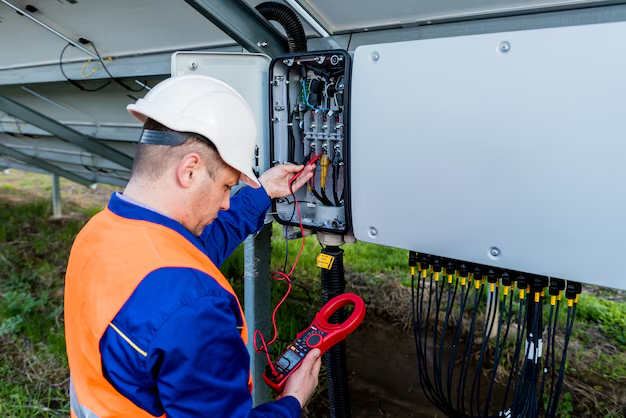Powering Your Fridge: Choosing the Right Generator Size
When the power goes out, a reliable generator can mean the difference between saving or losing your perishable food items. But how do you know what size generator you need to keep your refrigerator running smoothly during an outage? Understanding the power requirements of your fridge is crucial to making a smart investment capable of meeting your needs efficiently and effectively. Let's explore how to determine the right size generator for your refrigerator, considerations you should keep in mind, and additional insights to enhance your preparedness for power outages.
⚡ Understanding Refrigerator Power Requirements
Calculating Your Refrigerator’s Wattage
To select the right generator for your refrigerator, you first need to know how much power your refrigerator consumes. Most refrigerators list their power draw on a label located either inside the door, on the rear panel, or in the manufacturer’s manual. The power requirement is typically given in watts (W) or in volts and amperes (V/A). If given in V/A, calculating watts is simple: multiply volts by amperes (Watts = Volts × Amps).
Example:
- Refrigerator power rating: 120V/10A.
- Calculation: 120V × 10A = 1200W.
Factoring in Start-Up Surge
Refrigerators need more power to start than they do to run continuously. This start-up surge can be up to three times the running wattage as the compressor kicks in. It's essential to factor this into your calculations to ensure your generator can handle the spike without shutting down.
Practical Tip:
- Determine running and start-up watts: If running watts are 1200W, the start-up could be around 3600W.
🛠️ Choosing the Right Generator
Types of Generators
Generators come in various types, each suited for different needs. Identifying the right one for your refrigerator involves understanding the different options available:
Portable Generators: Ideal for home use and emergencies. They are typically more affordable and provide enough wattage for basic household items, including a refrigerator.
Inverter Generators: Known for their efficiency and quiet operation. They provide cleaner power and are perfect for sensitive electronics and appliances, like refrigerators.
Standby Generators: Permanently installed and run automatically when power is lost. They are a long-term investment suitable for those living in areas prone to frequent outages.
Sizing Your Generator
When shopping for a generator, you'll want to account for both the continuous power (running watts) and start-up power (surge watts) needed. Here's a simple breakdown:
- Running Watts: The continuous power that ensures your fridge operates typically.
- Surge Watts: Temporary boost needed when the fridge starts up.
Example Generator Sizing:
- Running watts: 1200W
- Surge watts: 3600W
- Recommended generator size: At least 3600W to manage surge
General Recommendations
- Choose a generator with a wattage slightly above your calculated needs to ensure efficient operation.
- Factor in additional appliances. If you wish to power more than just your refrigerator, account for their combined wattage needs.
🕒 Planning for Extended Use
Fuel Considerations
Knowing how much fuel your generator consumes is also crucial for extended power outages.
- Gasoline: Readily available and inexpensive, but has a shorter shelf life and requires proper storage.
- Propane: Burns cleaner and can be stored longer but is less energy-dense compared to gasoline.
- Diesel: Offers higher efficiency and longer runtime but can be noisy.
Maintenance Practices
To ensure your generator's longevity and reliable operation, consider implementing the following maintenance practices:
- Regularly check oil levels and change oil as recommended.
- Test run your generator periodically, even when not in use.
- Inspect and clean air filters.
- Keep your generator stored in a safe, dry place to prevent damage.
📋 Quick Reference Guide
Here's a quick reference guide to help you with your purchasing decision and maintenance planning:
Refrigerator Power Needs
- Determine operating watts and surge requirement.
- Make sure the generator matches or exceeds the combined wattage.
Generator Types
- Portable for cost-effective short-term use.
- Inverter for quiet, efficient, and clean power.
- Standby for automatic, whole-home solutions.
Fuel Options
- Gasoline for convenience.
- Propane for efficiency and cleaner burn.
- Diesel for longer runtime.
✅ Key Takeaways
- Calculate accurately: Understand both running and surge watts.
- Choose smartly: Consider portability, efficiency, and additional appliance needs.
- Plan practically: Think about fuel types, storage, and maintenance.
- Stay prepared: Regularly test your generator to ensure reliability in emergencies.
Having the right size generator is just the beginning. Implementing a practical plan for its use and maintenance is equally important to ensure that your investment pays off when it matters most. With this knowledge, you are now better equipped to tackle any power outages with confidence and ease—keeping your refrigerator, and your peace of mind, intact.

